

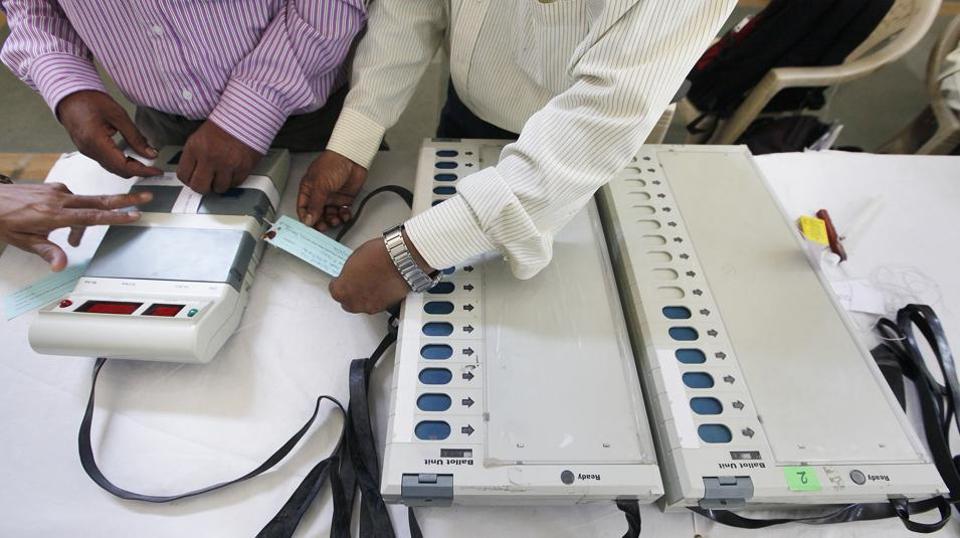
Congress leaders have raised concerns about EVM tampering in Haryana, citing results from machines with varying battery strength. However, sources from the Election Commission have rejected these claims, stating that alkaline batteries used in EVMs have the property of regaining voltage when switched off, which explains the discrepancies in battery percentages. The EC further clarified that initial battery strength is determined on the day of commissioning in the presence of candidates, and the control unit remains functional as long as the battery has more than 5.8 volts, similar to a vehicle running on reserve fuel.
Electronic Voting Machines: Concerns and Clarifications
Background
Electronic Voting Machines (EVMs) have been used in India since 2000 to facilitate free and fair elections. They are designed to improve efficiency, reduce fraud, and enhance voter confidence. However, the use of EVMs has also sparked controversies regarding their reliability and susceptibility to tampering.
Current Concerns
In recent elections held in Haryana, Congress leaders expressed concerns about possible EVM tampering. They cited reports of discrepancies in battery strength among EVMs, suggesting that some machines may have been tampered with.
Election Commission's Response
The Election Commission (EC) has dismissed these claims, stating that the alkaline batteries used in EVMs have a unique property. When switched off, these batteries regain voltage, which explains the variations in battery percentages observed. The EC further clarified that:
Top 5 FAQs and Answers
1. Can EVMs be tampered with?
According to the EC, EVMs are tamper-proof and have multiple layers of security features. However, some concerns have been raised regarding the possibility of tampering with the software or firmware of the machines.
2. How are EVMs tested for accuracy?
EVMs undergo rigorous testing and certification processes before being deployed for elections. This includes mock polls, paper ballot trails, and random selection of machines for verification.
3. What are the advantages of EVMs?
EVMs reduce election time, eliminate manual errors, and provide quick counting of votes. They also improve voter convenience and have a deterring effect on booth capturing.
4. What are the concerns with EVMs?
Concerns have been raised about the lack of paper trails, the possibility of software vulnerabilities, and the potential for human error in handling the machines.
5. What measures are taken to ensure the integrity of EVMs?
The EC employs various measures to ensure the integrity of EVMs, including sealing of machines, security protocols, and independent verification of results. The machines are stored under tight security and access is restricted to authorized personnel only.
Conclusion
The issue of EVM reliability remains a topic of debate. While the EC maintains that EVMs are secure and tamper-proof, concerns about their vulnerability continue to persist. It is crucial for the EC to address these concerns transparently and take all necessary steps to enhance voter confidence in the electoral process.
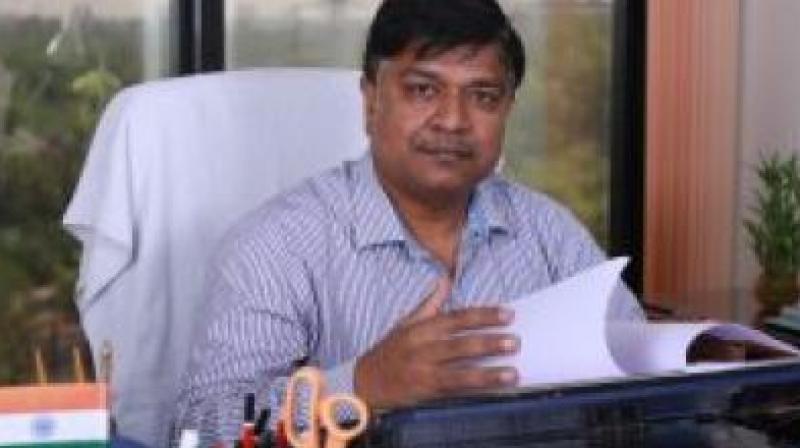
Delhi's ruling party, AAP, has announced a scholarship scheme for Dalit students hoping to pursue higher education abroad. With the upcoming assembly polls in mind, party chief Arvind Kejriwal presented this initiative at the party headquarters, with other party leaders in attendance. Meanwhile, the BJP gears up for the elections by shortlisting candidates and stating that the manifesto will be shaped based on the feedback received from the people of Delhi. Additionally, AAP's door-to-door campaign aims to register beneficiaries under two prominent welfare schemes.

The Lieutenant Governor of Delhi, V K Saxena, has given approval to the Enforcement Directorate (ED) to prosecute Arvind Kejriwal, the chief of the Aam Aadmi Party (AAP), in connection to a case involving irregularities in the excise policy of Delhi. The ED had sought permission from the Chief Secretary in December last year to prosecute Kejriwal and his former deputy Manish Sisodia. However, the AAP has denied any such sanction and accused the ED of mishandling the case and trying to politically malign the party. The investigation into the alleged liquor scam has been dragging on for two years, resulting in harassment and inconvenience for hundreds of people, without any evidence of corruption being found.

Indian National Lok Dal (INLD) leader and former Haryana Chief Minister O. P. Chautala has passed away at the age of 89. Known for his strong presence in rural Haryana and his dominant Jat voter base, Chautala suffered a cardiac arrest at his home and was unable to recover. His contributions to state politics and his efforts to continue his father Chaudhary Devi Lal's legacy have been praised by many, including Prime Minister Narendra Modi and current Haryana Chief Minister Nayab Singh Saini. Chautala's body will be cremated in Sirsa on Saturday, where people will have the opportunity to pay their respects.

Congress questions PM Modi's priorities as ethnic violence rages on in Manipur and he embarks on a two-day visit to Kuwait, the first by an Indian PM in 43 years. Congress leader Jairam Ramesh highlights the discrepancy in the PM's actions as Manipur's fate remains uncertain.
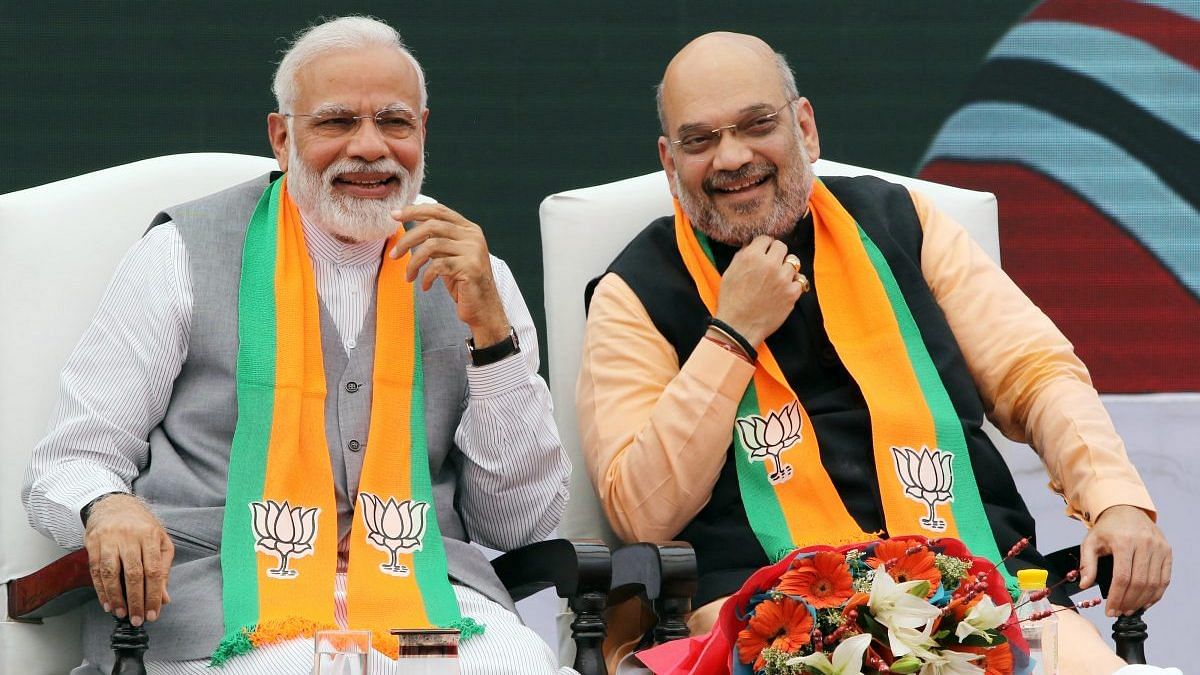
The Congress party has demanded an apology from Prime Minister Narendra Modi for defending Union Home Minister Amit Shah's controversial remarks about Dr. Baba Saheb Ambedkar. Party leaders Gaurav Gogoi and Pramod Tiwari accused the BJP of behaving in a fascist manner and expressed disappointment that no FIR has been filed in their complaint about the incident involving BJP and Congress MPs. Tiwari also highlighted the disrespectful and insulting tone of Amit Shah's speech, and Gogoi revealed that Congress President Mallikarjun Kharge has requested an inquiry into the incident where he fell due to the actions of BJP MPs.

Prime Minister Narendra Modi recently sparked controversy by claiming that the Congress party, under the leadership of Jawahar Lal Nehru, conspired to defeat Dalit icon BR Ambedkar in the 1951-52 Lok Sabha elections. This accusation was made in defense of his political confidante, Home Minister Amit Shah, who had stated that the constant mention of Ambedkar's name has become a "fashion" in Indian politics. However, historical records show that Ambedkar lost the elections to the Congress candidate not once, but twice. How did Ambedkar's relationship with Nehru affect his political career, and was his defeat really a result of Nehru's actions?
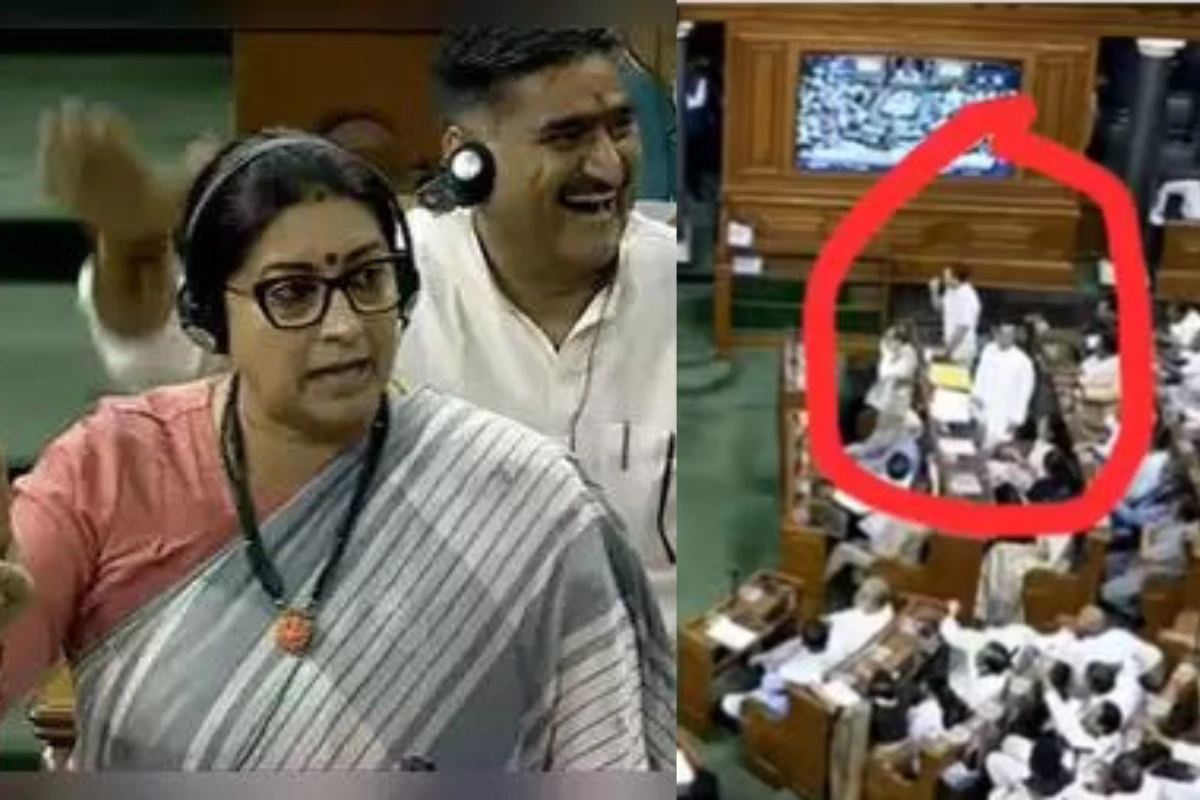
Former Chhattisgarh Chief Minister Bhupesh Baghel has called for the release of CCTV footage showing the alleged physical altercation between Congress leader Rahul Gandhi and a BJP MP in the Parliament complex. Baghel also criticised Union Home Minister Amit Shah for his 'inflammatory' comments regarding Dalit icon B.R. Ambedkar. Rahul Gandhi and the Congress have refuted the accusations and retaliated with their own complaint. Baghel also expressed concerns over the law and order situation in Chhattisgarh under the BJP government.
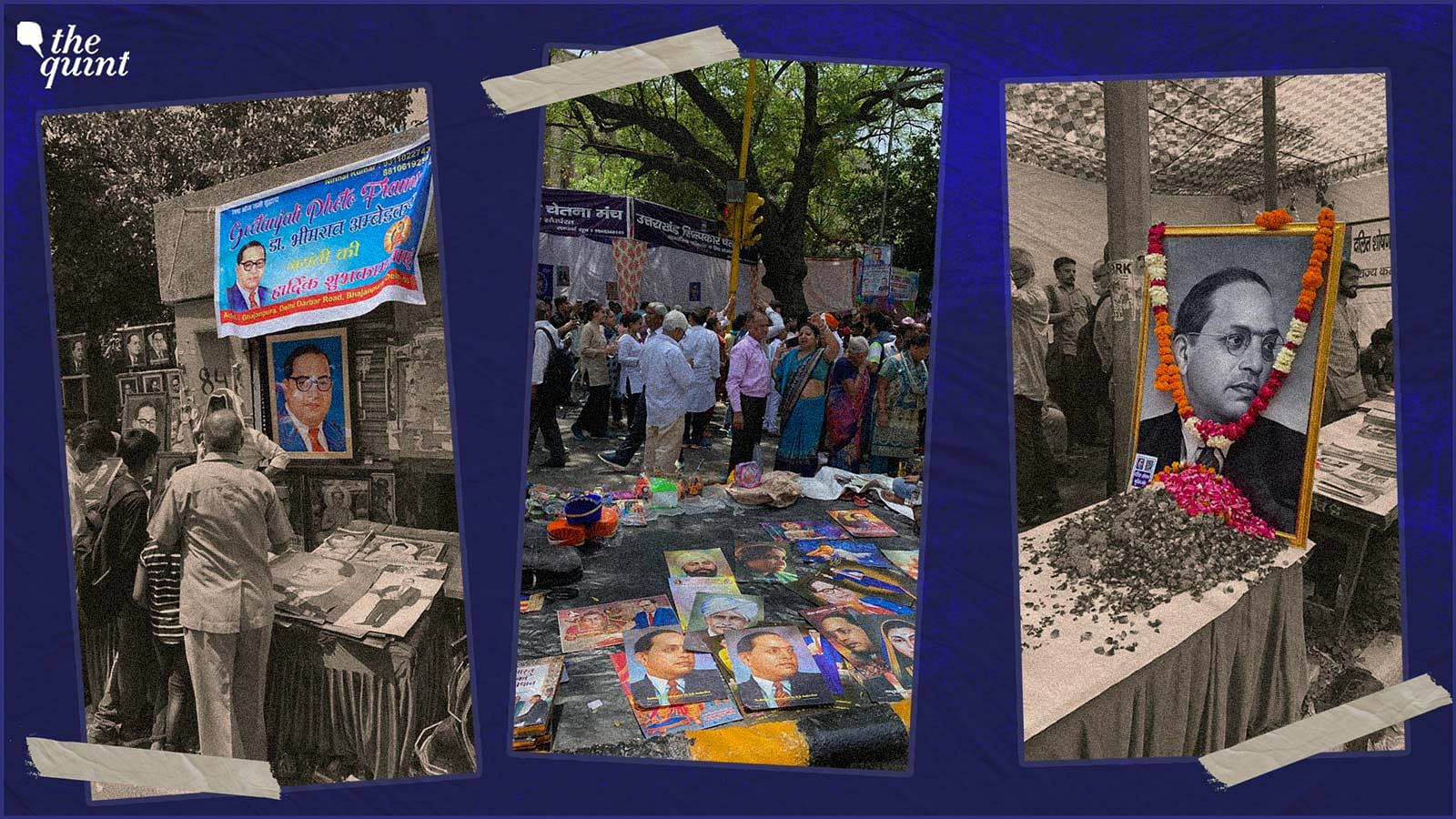
The Assembly constituency of Ambedkar Nagar, located near Saket in South Delhi, is home to a majority of lower-middle-class and middle-class families. Residents express their disappointment and frustration towards the recent political bickering in the Parliament over B R Ambedkar's legacy and instead look to the Aam Aadmi Party (AAP) for tangible solutions to their everyday issues. While the Congress and BJP continue to compete for the support of voters, the AAP has already gained the trust of many residents through their policies and actions. However, some residents remain skeptical and call out the timing of the AAP's recent efforts in the area.

Uttar Pradesh Chief Minister Yogi Adityanath highlights the destruction of Hindu temples in various parts of the country and reiterates the need for protecting Sanatan Dharma for world peace. He speaks out against the atrocities faced by Hindus in Bangladesh, Pakistan and Afghanistan and vows to destroy the lineage of those who desecrated Hindu places of worship. Adityanath's remarks come a day after RSS chief Mohan Bhagwat spoke about inclusivity and building a model of harmony in the country that can be adopted by the world.
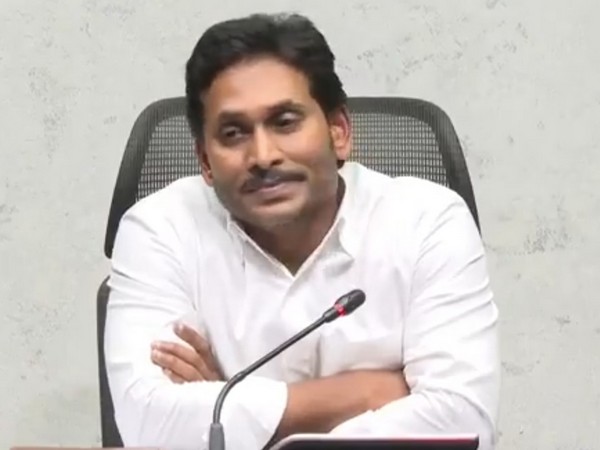
The Andhra Pradesh Chief Minister Jagan's controversial decision to boycott assembly sessions unless accorded the status of opposition leader is causing tension within his own party. People are questioning his motives and demanding answers as to why he and his 10 party MLAs should be allowed to stay away from the assembly without facing consequences. The situation is only escalating as Jagan continues to make impossible demands, leading to concerns about the party's political future.